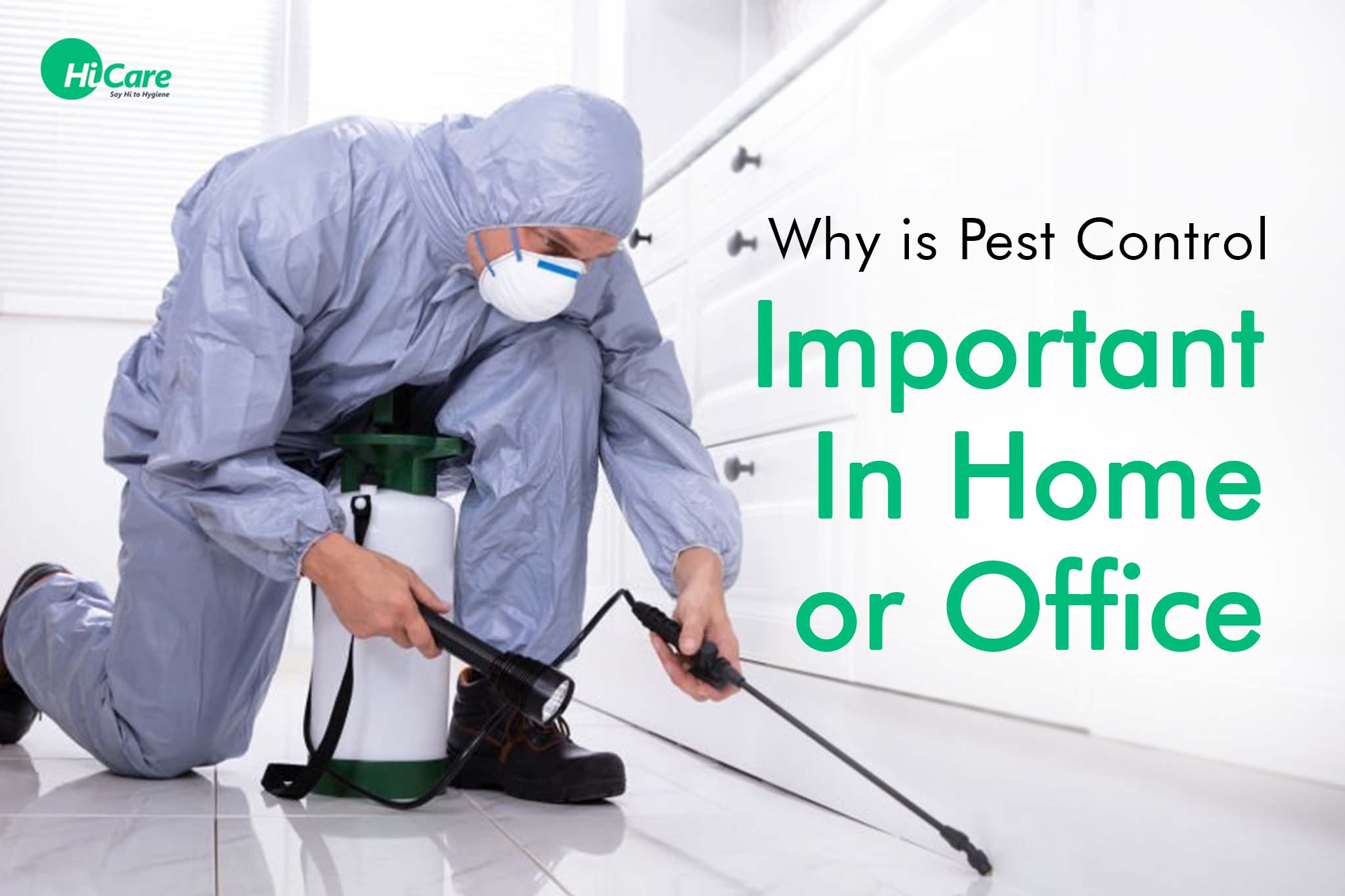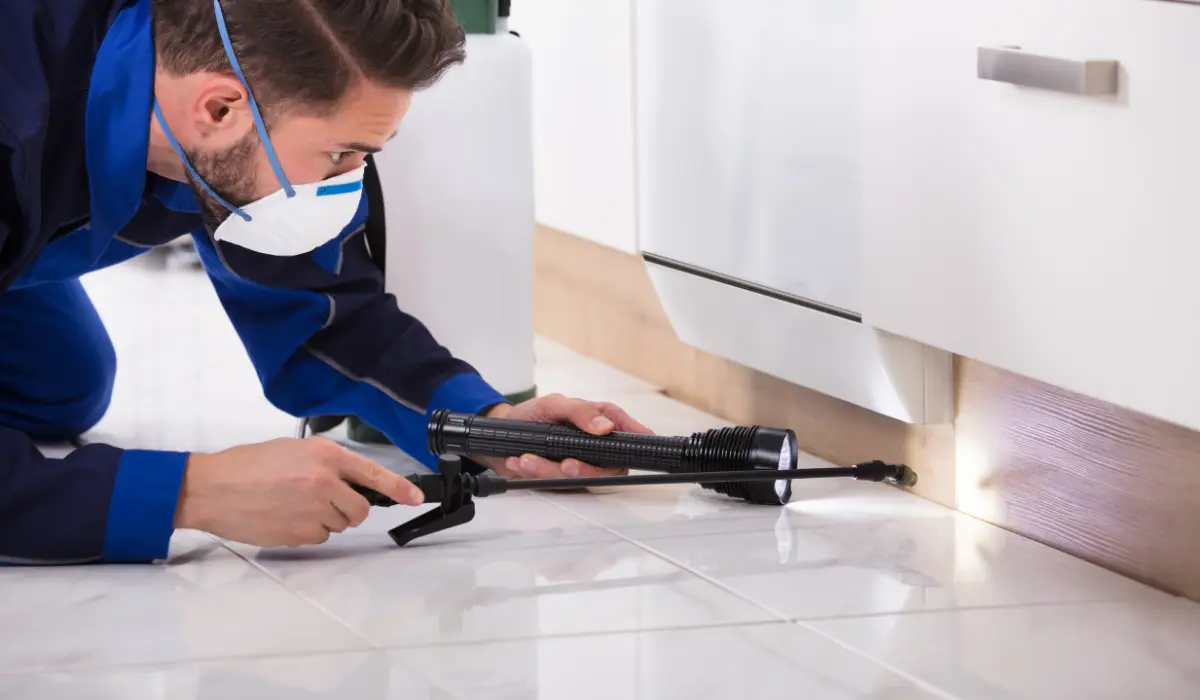Safe and Trusted Parasite Control for Lasting Security
The value of trusted and safe insect control can not be overemphasized, especially in an era where ecological concerns are paramount. Effective insect monitoring needs a diverse strategy that balances eco-friendly honesty with the requirement for efficient pest reductions. By exploring environmentally friendly services and incorporated insect administration approaches, home owners can attain enduring protection versus intrusive types while securing beneficial communities. The nuances of these methods may not be promptly clear, prompting a more detailed evaluation of the practices that can lead to sustainable pest control end results. What steps can be required to ensure both safety and security and efficiency in insect management?
Comprehending Pest Control Methods
Bug control incorporates a selection of methods targeted at managing and getting rid of undesirable pests and rats that can threaten both health and residential property. Comprehending these methods is critical for effective parasite management.
The primary groups of insect control techniques consist of mechanical, biological, and chemical techniques. Mechanical techniques entail physical obstacles and traps to stop pest entry and capture undesirable varieties. As an example, utilizing displays on windows or using sticky traps can considerably minimize parasite populaces without presenting hazardous substances.
Chemical parasite control is commonly the most recognized approach, utilizing chemicals to remove pests. These chemicals can be efficient however must be made use of with caution to avoid adverse results on non-target varieties and the atmosphere.
Benefits of Eco-Friendly Solutions
Just how can eco-friendly options change pest control methods? The fostering of environment-friendly parasite control techniques offers numerous benefits, considerably enhancing the performance and security of pest monitoring.

Another benefit is the favorable effect on local biodiversity. Green remedies are designed to target particular bugs while protecting helpful bugs and wildlife, promoting a balanced ecological community. This technique straightens with the growing customer need for lasting methods, boosting the online reputation of bug control providers.
Integrated Parasite Monitoring Strategies
The application of environmentally friendly options naturally causes the adoption of Integrated Parasite Monitoring (IPM) strategies, which further boost insect control effectiveness. IPM is an all natural method that incorporates several tactics to take care of insect populaces while lessening environmental influence. This approach emphasizes the usage of biological, social, mechanical, and chemical controls, guaranteeing a lasting and balanced method of insect management.
One fundamental element of IPM is the comprehensive evaluation of parasite activity and environmental problems. By keeping an eye on parasite populations and identifying their life cycles, professionals can implement targeted treatments that interrupt the parasite's habitat or lifecycle, lowering dependence on chemical pesticides. Additionally, cultural methods such as plant rotation and habitat manipulation can substantially diminish bug facility and recreation.
One more critical component is making use of organic control agents, such as advantageous bugs or bacteria, which can normally subdue pest populations. When chemical applications are needed, IPM prioritizes using low-risk pesticides and applies them selectively, decreasing direct exposure to non-target microorganisms and people.
Incorporating IPM methods not just boosts bug control effectiveness however additionally promotes a safer community, aligning with the growing demand for sustainable practices in visit the site bug administration.
Safe Practices for House Owners
Understanding the significance of risk-free practices in parasite control can encourage house owners to successfully handle insect issues while safeguarding their wellness and the setting. Executing non-toxic approaches and safety nets is vital in lessening direct exposure to harmful chemicals.
Property owners ought to first assess their atmosphere for problems that bring in pests, such as standing water, food, and mess weblink waste. On a regular basis cleaning and securing entrance points can prevent parasites from getting into the home. Using natural deterrents, such as important oils or diatomaceous earth, can offer efficient choices to chemical pesticides.
When chemical therapies are required, home owners must select items that are especially identified as secure for residential usage. It is vital to follow application standards diligently to stay clear of too much exposure. Making use of targeted therapies in locations where insects are determined, rather than covering spraying, can considerably minimize chemical use.
Lastly, keeping open communication with insect control specialists is essential. Homeowners should ask about the safety and security of items utilized and demand environmentally friendly alternatives whenever feasible. By embracing these secure practices, home owners can develop a much healthier living atmosphere while effectively handling parasite issues.

Tips for Long-Term Defense
Developing a bug administration technique that emphasizes long-term security can substantially improve the effectiveness of the safe techniques previously talked about. To accomplish this, home owners must carry out normal evaluations of their residential or commercial property, concentrating on hidden locations such as attics, basements, and crawl rooms. Early detection of insect task is vital in avoiding problems from taking hold.
Additionally, keeping a clean environment is vital. This consists of proper food storage, quickly cleaning spills, and consistently disposing of rubbish. These techniques decrease attractants that draw bugs into the home. Additionally, securing entrance factors, such as fractures around doors and windows, can properly obstruct possible parasite access.
Landscape design needs to also be considered; keeping plants cut and maintaining a distance in between vegetation and the home minimizes hiding spots for parasites. Utilizing natural deterrents, such as essential oils or diatomaceous planet, can further dissuade invasions without resorting to extreme chemicals.
Finally, teaming up with a specialist bug control you can try this out service for regular assessments can supply an extra layer of security. These professionals can supply tailored recommendations and progressed treatments, ensuring that your home continues to be safeguarded against bugs in the long-term.
Conclusion
To conclude, trusted and safe parasite control calls for a multifaceted technique that highlights environmentally friendly approaches and integrated bug administration. By applying all-natural deterrents, carrying out regular inspections, and keeping proper cleanliness, residential property proprietors can substantially decrease insect populations while safeguarding helpful pests and the atmosphere. Partnership with professional pest control solutions enhances the performance of these strategies, making sure tailored remedies that supply enduring protection and assurance versus future invasions.
Efficient insect management requires a diverse method that balances eco-friendly integrity with the need for effective insect suppression. The fostering of green insect control methods offers many advantages, substantially enhancing the efficiency and safety of insect administration.The application of environment-friendly services naturally leads to the fostering of Integrated Bug Administration (IPM) approaches, which additionally enhance insect control efficiency. exterminator coquitlam. By checking insect populations and identifying their life cycles, practitioners can apply targeted interventions that interfere with the insect's environment or lifecycle, lowering dependence on chemical pesticides.In final thought, secure and reputable parasite control needs a multifaceted technique that emphasizes eco-friendly approaches and integrated insect monitoring